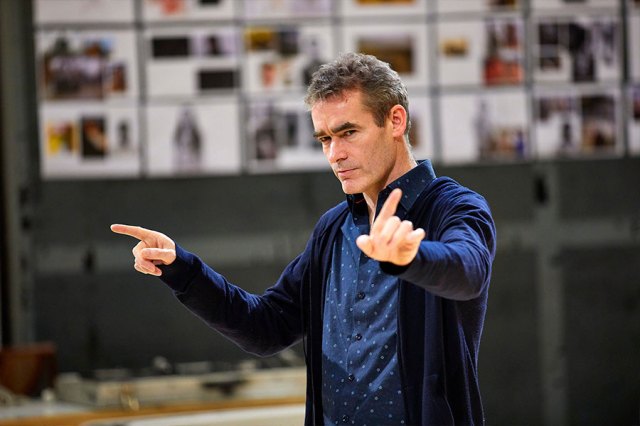Criticism comes with the territory: Sarah Crompton on Rufus Norris’ time at the National Theatre
Norris has announced he plans to end his time at the National Theatre

There’s still more than 18 months to run on Rufus Norris’s tenure as artistic director of the National Theatre and there will be time to judge his decade in charge when he actually leaves in spring 2025. I wonder if, like all his predecessors, he has been keeping a diary of his time in charge, ready to shape his legacy in the years to come.
What I think is clear already is that Norris has had a hard time of it. Whatever else his achievements, he managed to keep the National Theatre going – just about and with many tough decisions to be made – through the dark days of Covid. He had to let staff go which must have run counter to his instincts and his personality, but he also opened up the place to a wider audience both by developing NT Live to stream famous past productions and by making an adventurous filmed version of Romeo and Juliet starring Josh O’Connor and Jessie Buckley.
In wider terms of access, NT Collections, an initiative that makes world class theatre available to schools, already looks like a good deed at a time when so many young people are being deprived of live access to theatre and all the possibilities that it might inspire. He’s made the place genuinely more diverse as well, commissioning plays by writers such as Inua Ellams and Natasha Gordon that not only put Black lives centre stage but also encouraged a new audience through the doors. 2020’s Death of England by Roy Williams and Clint Dyer was a perfect state of the nation play.
Norris has been criticised for ignoring the classic canon and there is some truth in that, but on the other hand he’s brought some lost masterpieces to light – Lorraine Hansberry’s Les Blancs, revived in 2016, springs immediately to mind as a play I had never seen produced but which lingers magnificently in the mind. He has also consistently programmed the genius who is Annie Baker, backed important co-productions with the regions, and independent theatre groups, trying to spread subsidy as far as it will stretch.
He’s had some horrors too. There was a run of bad new plays often played in the exposing spaces of the Olivier and his own directorial record was blemished by a misjudged Macbeth and by his decision to persist with a production of his wife Tanya Ronder’s musical Hex, which wasn’t terrible but wasn’t good enough to rebut the charges of nepotism. Covid gave him a perfect opportunity to drop it and he probably should.
A wiser politician might have done so. But Norris’s main problem in his time in charge is that he has always seemed slightly uncomfortable in the role, when his predecessor Nicholas Hytner seemed to at ease. Hytner’s own regime was marked by some disasters – Greenland, anyone? – but somehow he breezed through on the back of his hits, War Horse and The History Boys among them.
Norris too has overseen a progression of really successful transfers – his own London Road, The Lehman Trilogy, The Ocean at the End of the Lane – and the theatre is currently going through a real purple patch with Jack Thorne’s The Motive and the Cue (also about to transfer to the West End), a wonderful revival of Dancing at Lughnasa, and much buzz around Dear England, by James Graham.
But for all his charm and intelligence, Norris’s diffidence and apparent shyness sometimes make his successes seem less bright than they are. He also faces problems Hytner did not: a government hostile to culture, Arts Council cuts. Much of his time has been spent in relentless fund-raising, which is not necessarily the best context in which to run a major institution. I suspect when we really examine his years in charge, they will look as good, bad and indifferent as anyone else’s. It is perspective that we lack.
For now, though, all the speculation surrounds his successor. If I were a betting woman (which I am not) I would say it was unlikely that another man will run the National next, which brings quite a few talented contenders such as Indhu Rubasingham and Josie Rourke, but I can also think of a lot of men including Simon Godwin, Rupert Goold and the National’s current deputy director Clint Dyer who might throw their hat into the ring. A co-artistic directorship, similar to the RSC, may be another possibility.
But the one thing I can absolutely predict with total assurance is that whoever gets the job, they will face all sorts of criticism and pressure. Just as Laurence Olivier, Peter Hall, Richard Eyre, Trevor Nunn, Nicholas Hytner and Rufus Norris have done. It comes with the territory.
















